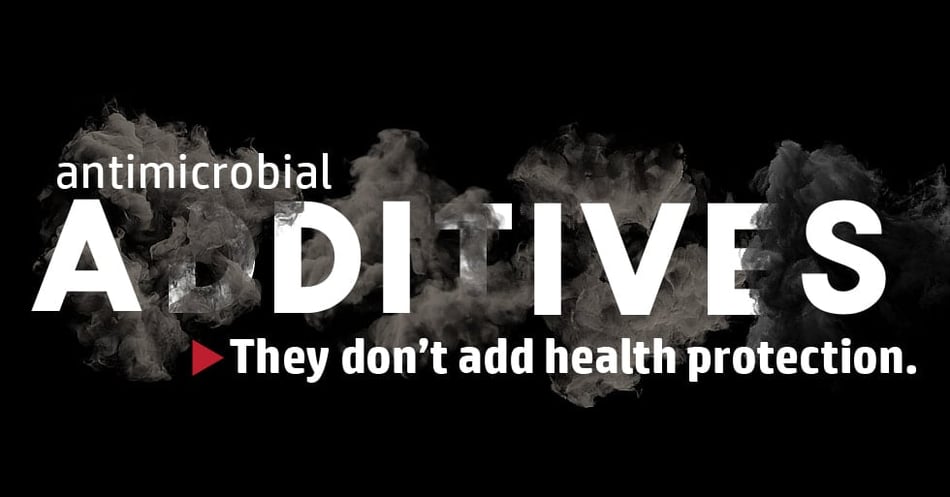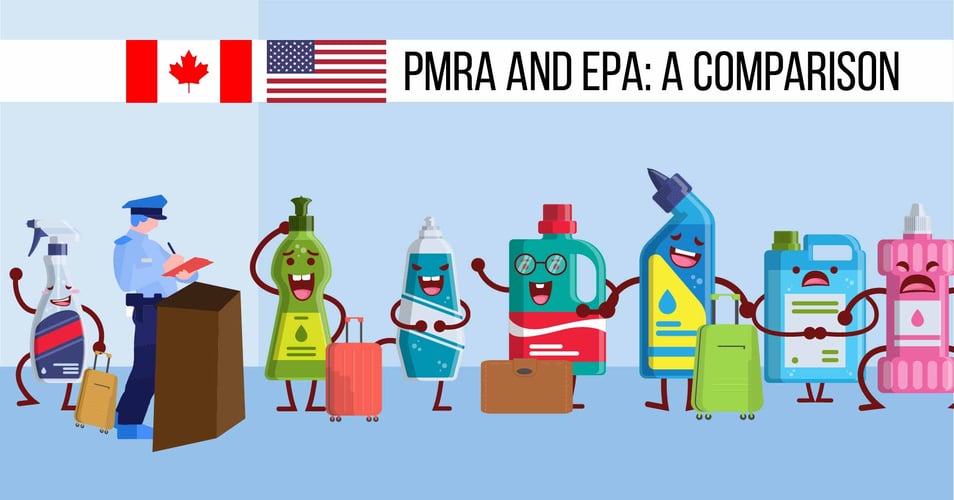Additives: They Don't Add Health Protection

Without a doubt, those in charge of environmental safety at businesses, places of worship, schools, and other public areas were inundated with sales presentations about products that promise to keep surfaces clean during the pandemic. While federal agencies (the Food and Drug Administration and the Environmental Protection Agency) tried to curb the spate of misleading claims, misinformation, and outright lies, some still made it out into the marketplace. It's particularly important that consumers understand the role of antimicrobial additives, a segment of the market that can lead to a lot of misunderstanding. In today's post, we hope to prepare you to ask the right questions and probe the statements you might hear as you investigate products for your facility.
Antimicrobial additives are not typically a direct-to-consumer product. Most often, additives are marketed to manufacturers as an ingredient that could add a sales advantage to their products. The ingredient may inhibit or slow the growth of certain microorganisms, and could be limited to just microbes that cause mold, mildew or odor. But the result is that the additive serves as product protection, not health protection. Here are three topics that might come up in a future sales pitch you encounter.
#1 EPA Registration
The gold-standard for a public health claim, the ability to say a product protects the user from disease-causing pathogens, is an EPA registration.
- What if they say they are EPA-registered? Ask if the product itself is EPA-registered, or if it's just an ingredient, an additive, that is registered. Ask for the EPA registration number and look it up online - if the product itself is not registered, then the public health claims do not convey.
- What if they say they are EPA "approved"/"certified"? The EPA does not approve or certify any product. Any advertising that uses any phrase term other than "registered/registration" is misleading and violates EPA rules.
- A note on a recent finding of the BBB's National Advertising Department: If an ingredient is EPA-registered, that alone is not enough to make a health-related claim. Independent testing must show that the product performs as described, and even then, the antimicrobial properties cannot be in a larger font or different color than any other physical attribute (the product can't say "ANTIMICROBIAL PROTECTION" really big on the packaging).
#2 Clinically Proven Results
One of the most common phrases on any kind of healthcare product is "clinically proven." That phrase itself is not regulated, but that shouldn't stop you from asking questions! What if they say they have clinically-proven results? Ask them for the published research. You'll want to check if it is from an independent peer-reviewed journal, or just an internal white paper. You'll also want to examine the conditions of the test: How many data points are there? What pathogens were tested? Under what conditions? For what length of time? Was the investigation in the field or in the lab? Are there any important confounders?
#3 Replace Your Cleaning Regimen
Do they claim that using their product means you have to clean less often or with non-EPA-registered cleaners? This is a significant red flag. No product can replace daily cleaning, which is technically the removal of organic debris on a surface. They may want to claim that you can save time or money by reducing your cleaning regimen, but this is not safe - because it's not possible.
Products with antimicrobial additives have their place. Without the proper research and regulation to back them up, however, their place may not be in your facility. In a time of heightened uncertainty and pressure, there are those who will try to capitalize on fear and lack of consistent oversight. Empower yourself and your team with information about public health claims and additives, and you will be able to see through even the most sophisticated smoke and mirrors.
Editor's Note: This post was originally published in August 2020 and has been updated for freshness, accuracy and comprehensiveness.
![EOScu Logo - Dark - Outlined [07182023]-01](https://blog.eoscu.com/hubfs/Eoscu_June2024/Images/EOScu%20Logo%20-%20Dark%20-%20Outlined%20%5B07182023%5D-01.svg)

![[infographic] Understanding EPA Public Health Claims Download and share!](https://no-cache.hubspot.com/cta/default/216314/interactive-178732435278.png)



